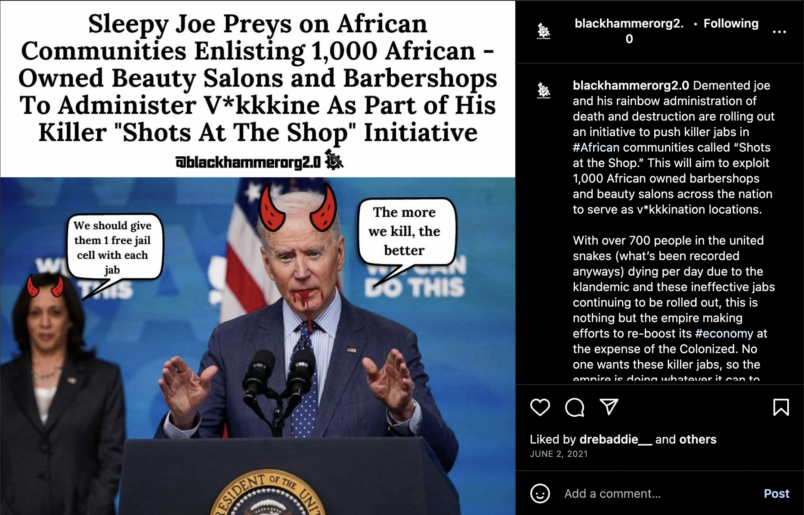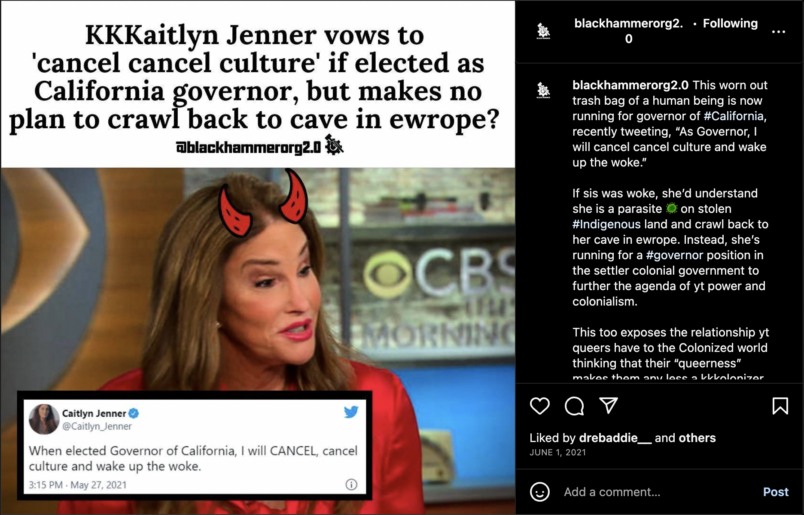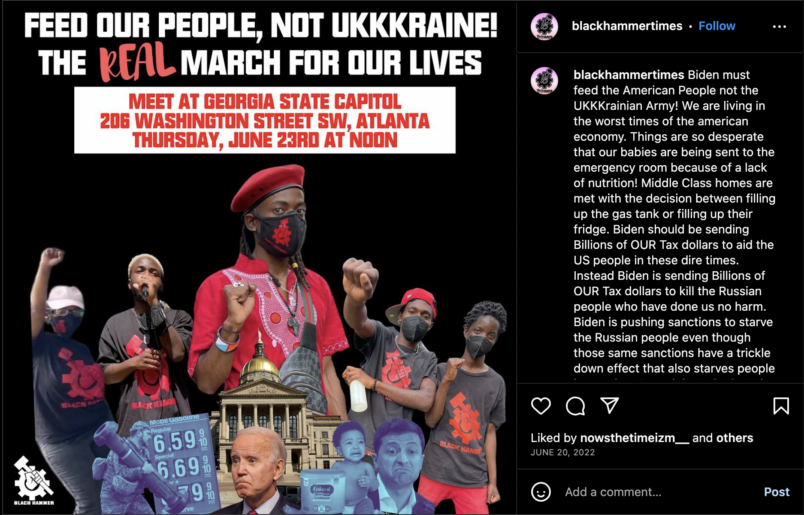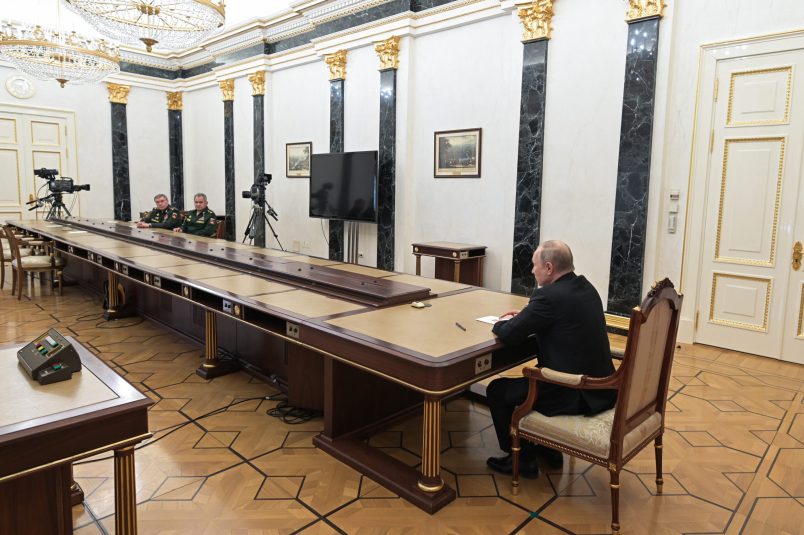Every few months now, the Justice Department alleges a new scheme to influence U.S. politics or curry favor with the influential.
On Tuesday, federal prosecutors unveiled four indictments alleging various Kremlin-backed attempts to ingratiate think tank researchers and journalists, create black nationalist movements across the American South, and interfere in the local elections in St. Petersburg, Florida.
The allegations offer a look at the often goofy places where these attempts to stoke divisions and boost conspiracy theories arrived.
Take the story of Gazi Kodzo, birth name Augustus C. Romain, Jr. Kodzo ran a Georgia group called The Black Hammer Party, a Marxist outfit which faced allegations of being a cult before police found a corpse at Kodzo’s home in July 2022. That prompted FBI raids of Black Hammer, but also of the Uhuru Movement, part of the African People’s Socialist Party.
Before his arrest last year on conspiracy, kidnapping, and assault charges related to his time at Black Hammer, Kodzo put out bizarre messaging that tended towards the kookier parts of the far-right. Take a look at what the group had to say about COVID:

Or pop culture:

So, how does this tie in with the Russia influence indictments?
Federal prosecutors accused Kodzo of being in thrall to Alexander Ionov, a cigar-chomping alleged FSB recruiter.
Per the indictment, Ionov worked with the FSB to recruit members of the Uhuru Movement, including Kodzo, who served as the group’s secretary general before departing in November 2018 to found Black Hammer.
Prosecutors describe Black Hammer — responsible for the above bizarre Instagram posts — as “acting at the direction or control of, with funding from” Ionov and his FSB handlers. That included, the feds say, attempts in the U.S. to “further the interests of Russia in relation to the Russian invasion of Ukraine.”
Prosecutors lay out multiple protests that Kodzo and Black Hammer allegedly conducted at the direction of the FSB. One was an Atlanta, Georgia demonstration in honor of Russia’s World War II victory over Nazi Germany; another protested U.S. support for Ukraine, staged at the Georgia state capitol.
Kodzo sent Ionov a video of himself saying at the rally that he was “not ashamed to say that the Black Hammer party has relationships with the Kremlin,” while Ionov, for reasons unexplained, bragged to Kodzo that he had promoted the Atlanta event in unnamed Italian and Irish newspapers.
Black Hammer promoted the rally below in a post mentioned in the indictment:

While all of this is quite bizarre, what’s possibly just as weird is the alleged campaign to run a candidate in the 2019 St. Petersburg, Florida city council election.
Per the indictment, Ionov coordinated with his FSB handlers over whether “450 bucks” was enough to organize a “headquarters, agitation materials, etc.” The indictment doesn’t name the candidate, though it says that the FSB group “actively direct[ed]” the person’s campaign, and that they called the 2020 presidential election the “main topic of the year” for the FSB.
Prosecutors also charged Russian citizen Natalia Burlinova with operating as an unregistered foreign agent.
This scheme is far less quirky, but appears to have gained purchase in subtler ways.
Burlinova oversaw a group called Public Initiative Creative Diplomacy (PICREADI), which invited young westerners to annual policy discussions in Moscow.
The group, prosecutors say, was secretly receiving funding from the FSB. And Burlinova allegedly reported on the attendees back to the FSB, supplying the group with “biographical information, their interests, and their political opinions.”
“The FSB subsequently monitored the career developments of these U.S. citizen participants with an aim that some would become influential public figures,” the indictment reads.
The group’s website says that meetings from 2017 to 2021 saw reporters from Foreign Policy, researchers at Johns Hopkins and Georgetown, and think tankers from Kennan and CSIS attend.
Burlinova and her FSB handler, the indictment said, saw the attendees as a useful resource. When two Europeans from a separate program became involved in their country’s elected politics, prosecutors said, Burlinova said that “these were the results that take years to come into fruition,” to which the unnamed FSB officer replied that it was “truly the result for which they were striving.”
In a separate case, one former program participant wrote an article arguing that Russian influence operations constituted “legitimate uses of state soft power,” prosecutors said. Regardless of your view on that, Burlinova saw it as a win, with her FSB associate purportedly calling the article “a huge result.”
Ukrainian researchers accused Burlinova’s group of being a government-created organization back in 2018, saying that it was part of a Kremlin attempt to spread soft power.
“The hand of the Kremlin is not behind us,” she replied.







Still unindicted: Tucker Carlson et al.
The FSB looks at our nutters and sees opportunity. Just like they did with Trump.
It would be exceptionally difficult for our enemies to do this in a racially just society where our AA countrymen felt that they were benefitting fairly.
Yeeee… at the least we’re tracking all the nutters now.
MAGAts and their minions are “the agents within.”